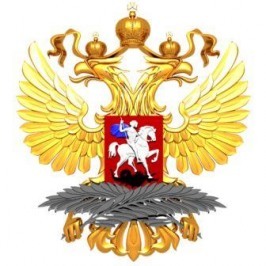We consider deplorable the EU Council decision of 30 July 2018 on expanding EU illegitimate unilateral restrictions to a range of Russian companies involved in the construction of the Kerch Bridge. Obviously the free choice made by Crimeans to reunite with Russia is haunting the European Union. Is there any alternative explanation of the fact that since 2016 the EU sanctions list has been widening by adding almost exclusively Russian citizens and organisations that are in one way or another involved in successful democratic development of Crimea and Sevastopol within the Russian Federation?
The pretext chosen by Brussels in order to meddle yet once more in the domestic affairs of our country has a deep symbolic meaning. Over many years high-ranking EU officials have been counting among historic achievements of European integration that it helped European nations “to build bridges, not walls”. It is utterly disappointing that the European Union has betrayed its own slogans by criticizing and then imposing restrictions on a construction project that literally cemented the ties of the Crimean peninsula with its historic Motherland and became a monument to freedom and unity of the Russian people. The European Union’s intentional acts to mount artificial obstacles on the way to the improving lives of Crimean residents within Russia are short-sighted and only set the public opinion in our country against the EU.
The European Union should have addressed its false reproaches about “isolating the peninsula” to its protegés in Kiev. They were the ones who did their best to sever the links between Ukraine and Russian Crimea. In 2014 they shut the North Crimean Canal organising a “water blockade” of the peninsula. In late 2015 they stopped supplying energy to Crimea from the territory of Ukraine. And in December 2016 a decree of the Ukrainian government introduced yet another “trade blockade”. We well remember the absence of official EU reaction both to these flagrant acts and multiple attempts by Ukrainian special services to organise terror and subversive attacks in the territory of the peninsula as well as provocative arrest of Crimean fishing boat “Nord” in the Azov sea waters. Besides, the European Union did not shy away from isolating itself against Crimean residents who had voted “in a wrong way” at the March 2014 referendum by introducing discriminatory visa restrictions. Under such circumstances one should not be surprised that Crimean residents opted – by ferroconcrete pilons of the Kerch Bridge – to connect their future to Russia.
We hope that the European Union will at last consider the financial and image costs of indulging anti-Russian whims of Kiev authorities. Interests of many companies from the EU Member States operating in Russia, including in the construction business, may suffer from another sanctions round. We assume that common interests of Russia and EU countries would be best served by pragmatic and mutually beneficial work based on sober recognition of existing realities.























